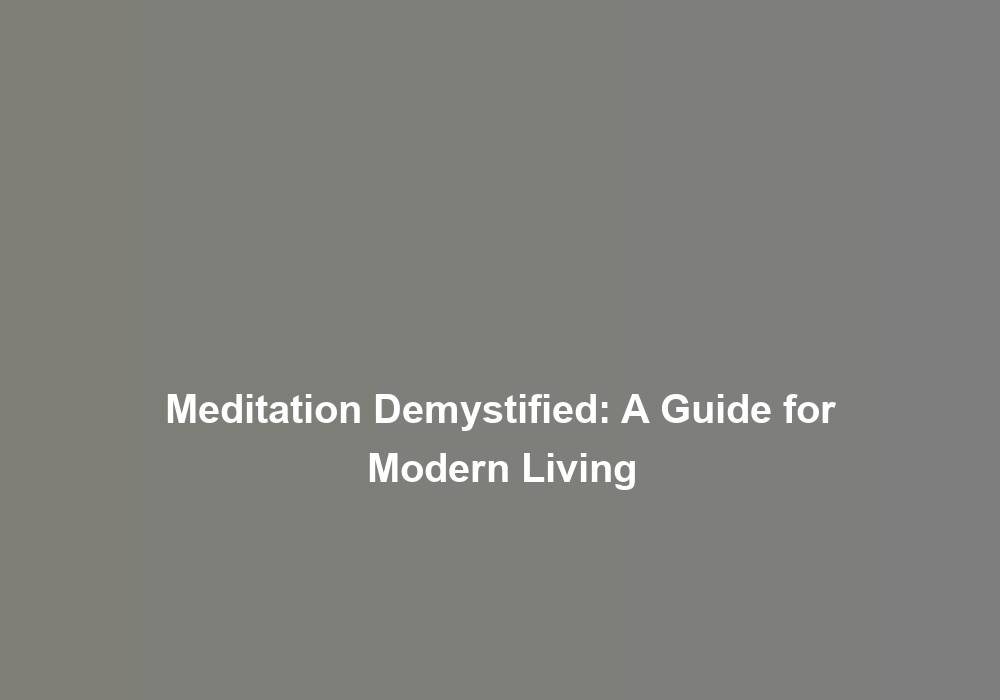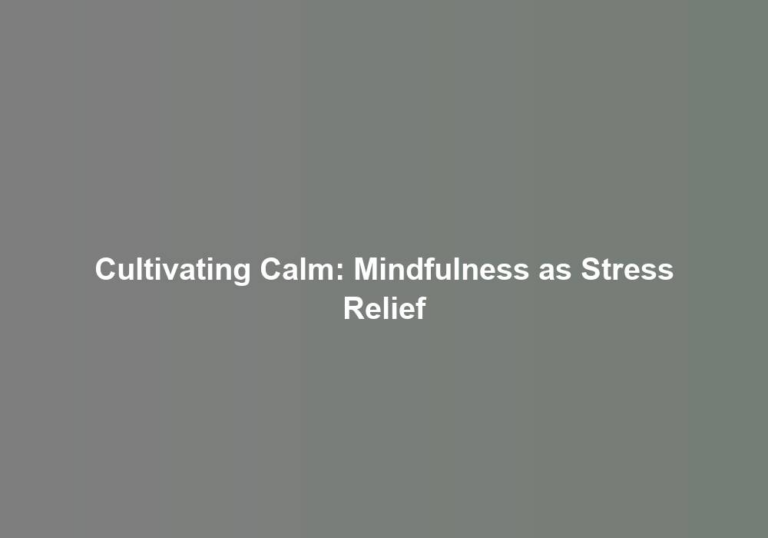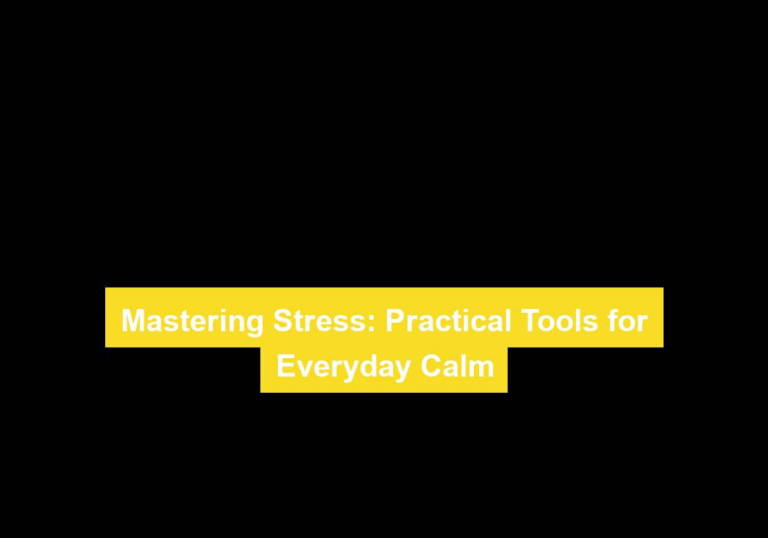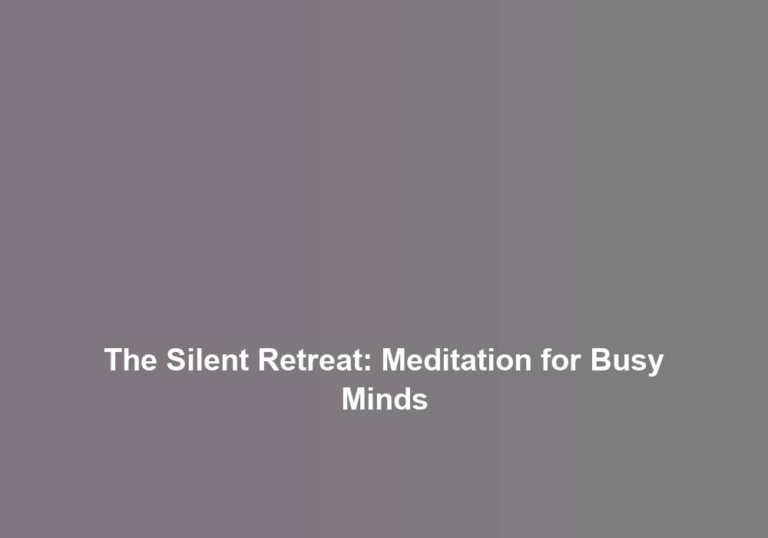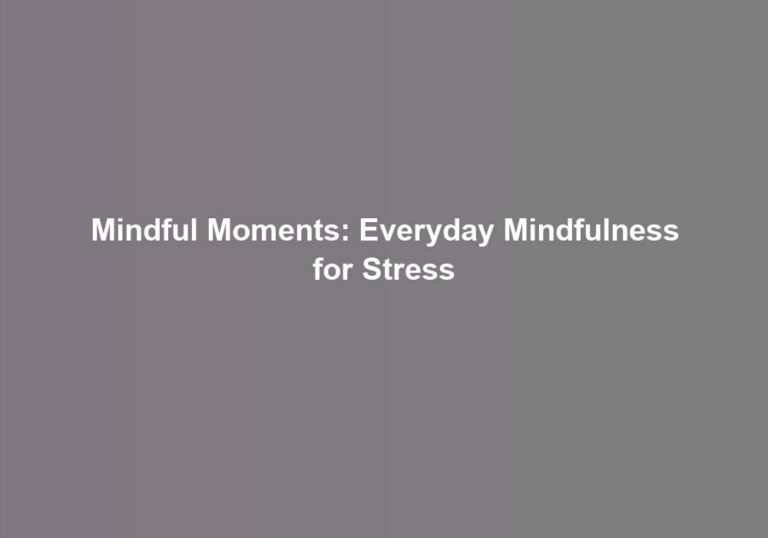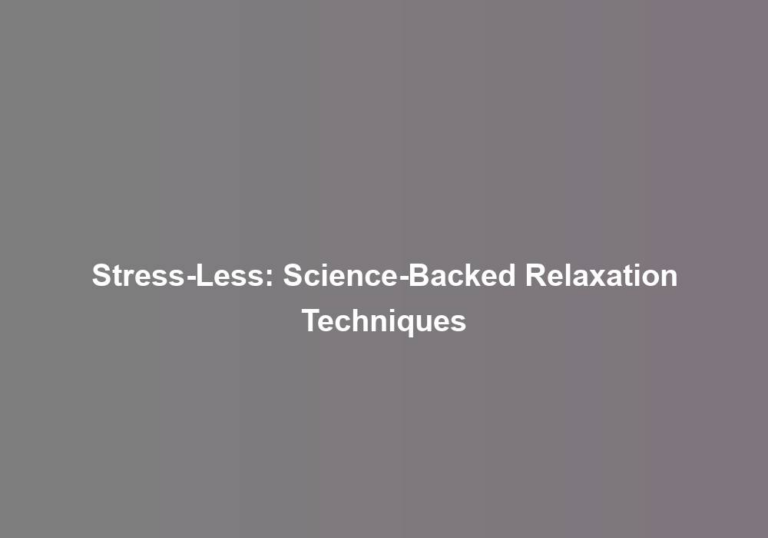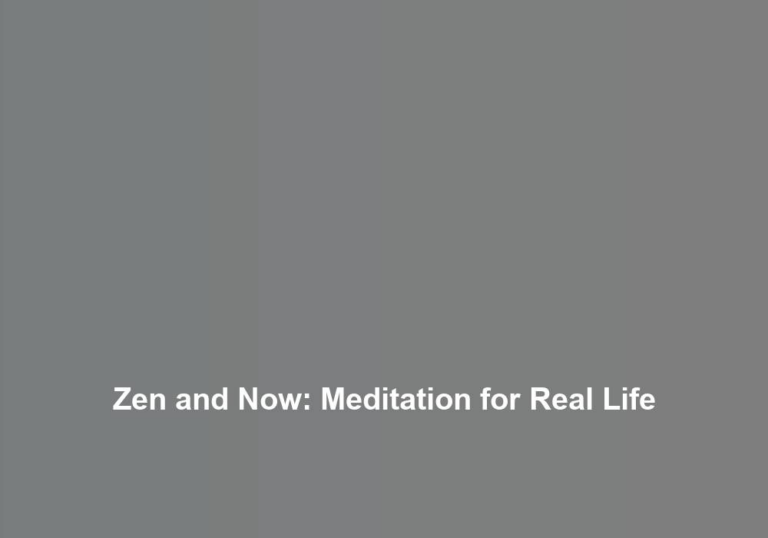Meditation Demystified: A Guide for Modern Living
You may be skeptical about the idea of meditation, thinking itG??s only for spiritual gurus or those seeking enlightenment. However, in todayG??s fast-paced world, the benefits of meditation are more relevant than ever. From reducing stress and anxiety to improving focus and overall well-being, meditation has been scientifically proven to offer a multitude of advantages for modern living. But how exactly can you incorporate this ancient practice into your hectic daily routine? This guide will provide you with practical techniques and insights to help you navigate the world of meditation and harness its benefits for a more balanced and fulfilling life.
The Origins of Meditation
Meditation has its origins in ancient Eastern practices, with evidence of its use dating back thousands of years. These ancient practices were deeply rooted in the cultural significance of the East, where individuals sought to explore the depths of their consciousness and connect with something greater than themselves. The practice of meditation was not only a personal endeavor but also a communal one, often being woven into the fabric of daily life and societal rituals.
In ancient times, meditation was a way to understand the self and the universe, offering a path to inner peace and enlightenment. It was a practice that transcended individual beliefs and was embraced by diverse cultures, each infusing it with their unique traditions and interpretations. The cultural significance of meditation was profound, shaping the way people interacted with the world around them and fostering a sense of belonging to something greater than themselves.
The ancient practices of meditation were intertwined with various aspects of life, including spirituality, philosophy, and the arts. They provided a framework for understanding the human experience and navigating the complexities of existence. As a result, meditation became a cornerstone of many Eastern cultures, influencing not only individual behavior but also societal norms and values.
Understanding the origins of meditation allows you to appreciate its rich history and the cultural tapestry from which it emerged. By exploring these ancient practices, you can connect with a tradition that has spanned millennia and find a sense of belonging to a global community of meditators seeking peace and self-discovery.
Understanding the Benefits
When you meditate, youG??ll discover that it brings mental clarity and reduces stress. These benefits can help you navigate the challenges of modern living with greater ease. LetG??s explore how meditation can positively impact your daily life.
Mental Clarity
Improving mental clarity through meditation can lead to enhanced focus, decision-making, and overall cognitive function. When you practice meditation, you can experience a range of benefits that contribute to mental clarity:
- Enhanced focus and concentration, allowing you to tackle tasks with greater efficiency.
- Improved decision-making abilities, leading to better choices in various aspects of your life.
- Increased cognitive function, which can help in problem-solving and creative thinking.
- Better emotional balance, enabling you to navigate lifeG??s challenges with resilience.
- Heightened self-awareness, leading to a deeper understanding of your thoughts and emotions.
These benefits contribute to a clearer and more focused mind, allowing you to approach life with a sense of purpose and confidence.
Stress Reduction
Enhancing mental clarity and focus through meditation can also lead to significant benefits in stress reduction. By incorporating relaxation techniques and mindfulness practices into your daily routine, you can actively manage stress and improve your emotional well-being. When you engage in meditation, you allow your mind to focus on the present moment, which can help alleviate feelings of anxiety and tension. This practice enables you to cultivate a sense of calm and balance, reducing the impact of stress on your overall health. Through consistent meditation, you can develop the tools to navigate challenging situations with greater ease and resilience. By prioritizing stress management through mindfulness practices, you create a foundation for emotional well-being and a more harmonious relationship with the world around you.
Practical Techniques for Beginners
If youG??re new to meditation, practical techniques can help you get started. Breathing for focus, setting intention, and mindfulness in action are key points to consider. These techniques provide a solid foundation for your meditation practice.
Breathing for Focus
To improve your ability to focus through breathing, begin by practicing simple and intentional breathing techniques. Deep breathing and concentration techniques can help you center your mind and enhance your focus. Start by finding a comfortable position, whether seated or lying down, and close your eyes. Then, take a deep breath in through your nose, allowing your lungs to fill with air. As you exhale, release any tension or distractions from your mind. Here are some practical techniques for beginners:
- Box Breathing: Inhale for four counts, hold for four, exhale for four, and hold for four again.
- Counted Breaths: Focus on your breath and count each inhale and exhale up to ten.
- Equal Breathing: Inhale and exhale for an equal count to create balance and calm.
Practice these techniques regularly to improve your focus and mental clarity.
Setting Intention
As you incorporate focused breathing techniques into your meditation practice, you can now explore practical methods for setting intention as a beginner. Intention setting is an essential aspect of a mindfulness practice, guiding your focus and energy during meditation. Here are some simple steps to help you set intentions effectively:
| Intention Setting Techniques | Description |
|---|---|
| Reflect on Your Values | Identify what truly matters to you |
| Visualize Your Intention | Picture yourself embodying your intention |
| Use Affirmations | Repeat positive statements to affirm your intention |
Mindfulness in Action
Discover practical techniques to bring mindfulness into action as a beginner, enhancing your meditation practice and daily life. To actively engage in the present moment and cultivate active awareness, consider the following:
- Breath Awareness: Focus on your breath as it enters and leaves your body, anchoring you in the present moment.
- Body Scan: Direct your attention to different parts of your body, noticing any sensations without judgment.
- Mindful Walking: Pay attention to each step, feeling the ground beneath your feet and the movement of your body.
- Eating Mindfully: Engage all your senses while eating, savoring the flavors and textures of each bite.
- Mindful Listening: Fully concentrate on what someone is saying without planning your response.
Overcoming Common Challenges
Navigating distractions and restlessness during meditation can be a common challenge for many practitioners. With the hustle and bustle of modern life, finding the time for meditation and eliminating distractions can be tough. However, itG??s important to remember that these challenges are normal and can be overcome with patience and practice.
When it comes to time management and distraction elimination, try to carve out a specific time for meditation each day. Whether itG??s first thing in the morning or just before bed, consistency is key. Find a quiet space where you can be alone with your thoughts, and consider using earplugs or a white noise machine to block out external disturbances.
Inner resistance and struggling to maintain consistency can also pose significant hurdles. ItG??s natural to encounter resistance when trying something new, especially when it involves introspection and self-reflection. The key is to acknowledge these feelings without judgment and gently guide your focus back to the present moment. Remember, meditation is a practice, and like any skill, it takes time and dedication to develop.
In overcoming these common challenges, itG??s essential to approach yourself with kindness and understanding. Be patient with yourself and celebrate the small victories along the way. By acknowledging the difficulties and persisting through them, youG??ll find that your meditation practice deepens, bringing about a greater sense of peace and clarity in your daily life.
Meditation and Modern Wellness
In todayG??s fast-paced world, incorporating meditation into your daily routine can significantly enhance your overall well-being. ItG??s not just a practice reserved for monks or spiritual gurus; itG??s a tool that can help you thrive in the modern world. Here are some ways meditation can contribute to your modern wellness:
-
Mindful Productivity: Meditation helps you sharpen your focus and enhances your ability to concentrate on the task at hand. By cultivating mindfulness, you can approach your work with clarity and purpose, leading to increased productivity and better decision-making.
-
Stress Reduction: Modern life brings with it a myriad of stressors. Meditation provides a sanctuary for your mind, allowing you to unwind and let go of the daily pressures that can take a toll on your mental and physical well-being.
-
Emotional Balance: In a world full of distractions and constant stimuli, maintaining emotional equilibrium can be challenging. Meditation helps you develop emotional resilience, enabling you to navigate the complexities of modern life with greater ease.
-
Improved Sleep: The demands of modern living can often interfere with our ability to get restful sleep. Meditative practices can promote relaxation and help alleviate insomnia, allowing you to enjoy more restorative sleep and wake up feeling refreshed.
-
Enhanced Self-awareness: In the midst of the hustle and bustle, itG??s easy to lose touch with ourselves. Meditation fosters self-awareness, helping you stay connected to your thoughts, emotions, and inner wisdom, which is crucial for overall well-being.
Incorporating meditation into your daily routine can bring about profound positive changes, empowering you to lead a healthier and more balanced modern life.
Incorporating Meditation Into Daily Life
Incorporate meditation into your daily routine to cultivate a sense of inner peace and mindfulness. Finding time for meditation amidst your busy schedule may seem daunting, but integrating it into your daily life can significantly impact your overall well-being. Here are some practical ways to seamlessly include meditation in your day:
| Time of Day | Activity | Meditation Technique |
|---|---|---|
| Morning | Waking Up | Mindful Breathing |
| Afternoon | Work Break | Body Scan Meditation |
| Evening | Before Bed | Loving-Kindness Meditation |
Starting your day with a few minutes of mindful breathing can set a positive tone for the rest of the day. During your work break, a brief body scan meditation can help reduce stress and improve work productivity. Finally, practicing loving-kindness meditation before bed can promote relaxation and improve the quality of your sleep.
In addition to these time-based practices, incorporating mindfulness into everyday activities like mindful eating can further enhance your meditation experience. Making use of meditation apps can also provide guidance and structure, making it easier to incorporate meditation into your daily routine.
Conclusion
Incorporate meditation into your daily routine, understand its benefits, and overcome common challenges. By understanding the origins and practical techniques for beginners, you can demystify meditation and make it a part of modern living. Embrace meditation as a tool for modern wellness and make it a part of your daily life.

